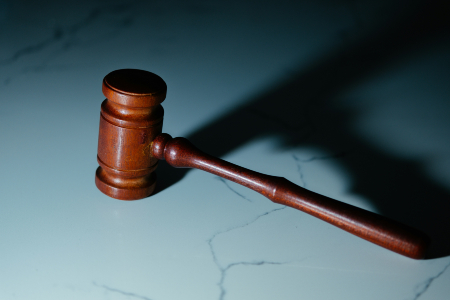'Frost/Nixon' is a tale of the tapes
FREE Catholic Classes
Newsday (MCT) - "Why didn't you burn the tapes?"
Highlights
McClatchy Newspapers (www.mctdirect.com)
12/4/2008 (1 decade ago)
Published in Movies
That blunt question, not exactly a softball, was the very first posed by British journalist David Frost to former president Richard Nixon on March 23, 1977, the start of an unprecedented series of interviews stretching over 12 days and nearly 29 hours. Broadcast in May of that year, the interviews covered nearly every aspect of Nixon's presidency in four 90-minute installments. But it was the first episode _ the one dealing with Watergate _ that drew 45 million viewers, then the largest television audience in history. Clearly, Americans were still scarred by their long national nightmare.
For sheer depth and breadth, the Nixon interviews remain unparalleled in television journalism, and they've since become a kind of cottage industry. Nearly 30 years later, in 2006, British playwright Peter Morgan staged "Frost/Nixon," a dramatization of the marathon sessions starring Michael Sheen as the journalist and Tony Award winner Frank Langella as the haunted president. On Friday, Universal Pictures will release Ron Howard's film adaptation, also with Sheen and Langella. Frost himself has published not one but two books on the subject.
And for completists, Liberation Entertainment released "Frost/Nixon: The Original Watergate Interviews," a DVD of the broadcast with new commentary by Frost, Tuesday.
"Obviously, there may never be anything quite like the Nixon interviews again," Frost said recently, "because he's the only president who was forced out of office. And he's the only president who's been interviewed for 28 and three-quarter hours. And obviously, he's the only president who came to say what he did."
Frost, sitting with a glass of chardonnay at the bar of a Manhattan hotel one recent weekday afternoon, was referring to the extraordinarily candid apology that Nixon offered during their conversation. Revisiting those grueling and often contentious talks, Frost _ now 69 and properly known as Sir David, a title conferred on him in 1993 _ vividly recalled even small details, and no wonder: The interviews were long enough, but the preparations took even longer.
They began in June 1975, when the late Clay Felker, then editor of New York magazine, phoned Frost after a weekend in the Hamptons. Felker had a tip: Talent agent Irving "Swifty" Lazar, famous for representing figures from Humphrey Bogart to Vladimir Nabokov, was handling a book deal for Nixon. Spotting an opening, Frost contacted Lazar and began the delicate process of securing an interview with a man who, to all appearances, would be the last person to grant one.
Yet Nixon agreed. He would be paid $600,000 and receive 20 percent of any profits. The interviews would take place in a rented house in Monarch Bay, Calif., not far from Nixon's home in San Clemente. Most important, he would not see the questions beforehand and would give Frost total editorial control.
At the time, the Watergate scandal _ a knotty string of break-ins, cover-ups and taped phone calls _ was well-covered territory. Nixon had resigned in 1974; Bob Woodward and Carl Bernstein of The Washington Post had released their groundbreaking expose "All the President's Men"; and the Senate Watergate Committee had issued its 1,250-page report. But Frost wasn't satisfied, and he believed the American people felt the same way.
"Very few of the questions had been answered," Frost said. "And he'd never had his account of Watergate tested _ and 'testing the account' became the key phrase we used."
Both Frost and Nixon prepared for battle by assembling small teams. The journalist relied on Robert Zelnick, a longtime political reporter, and James Reston Jr., an English professor at the University of North Carolina, among others. The former president's group included speechwriter Ken Kachigian and future "60 Minutes" correspondent Diane Sawyer, who served as a liaison between the two camps. As the interviews progressed, it became clear that Frost had become as well-versed in Watergate as Nixon himself. At one point Nixon even says as much, albeit with a pained smile.
But the pivotal moment came when Frost, abandoning the notes on his clipboard and speaking "from the heart," as he later put it, suggested that Nixon stop equivocating and apologize to the country. And to the amazement of 45 million viewers, he did.
"I let down my friends," the president said, dry-eyed but clearly emotional. "I let down the country. I let down our system of government." And later: "I let the American people down, and I have to carry that burden with me for the rest of my life."
For Frost, it was the culmination of years of work; for Americans, it was something much deeper.
"I do think we got the truth out of Richard Nixon," Frost said. "And as to what we got, we got more than we could have hoped."
___
© 2008, Newsday.
 Hi readers, it seems you use Catholic Online a lot; that's great! It's a little awkward to ask, but we need your help. If you have already donated, we sincerely thank you. We're not salespeople, but we depend on donations averaging $14.76 and fewer than 1% of readers give. If you donate just $5.00, the price of your coffee, Catholic Online School could keep thriving. Thank you. Help Now >
Hi readers, it seems you use Catholic Online a lot; that's great! It's a little awkward to ask, but we need your help. If you have already donated, we sincerely thank you. We're not salespeople, but we depend on donations averaging $14.76 and fewer than 1% of readers give. If you donate just $5.00, the price of your coffee, Catholic Online School could keep thriving. Thank you. Help Now >
Join the Movement
When you sign up below, you don't just join an email list - you're joining an entire movement for Free world class Catholic education.
-

-
Mysteries of the Rosary
-
St. Faustina Kowalska
-
Litany of the Blessed Virgin Mary
-
Saint of the Day for Wednesday, Oct 4th, 2023
-
Popular Saints
-
St. Francis of Assisi
-
Bible
-
Female / Women Saints
-
7 Morning Prayers you need to get your day started with God
-
Litany of the Blessed Virgin Mary
Encouraging Scripture for the Single Mom on Mother's Day
-

New York Judge Halts Constitutional Amendment on Abortion Due to Procedural Flaws
-

Special Ways to Celebrate Mom This Mother's Day
-
Discalced Carmelites ask for Edith Stein to be declared 'Doctor of Truth'
-
Cinco de Mayo - What is the day really about?
Daily Catholic
 Daily Readings for Thursday, May 09, 2024
Daily Readings for Thursday, May 09, 2024 St. Pachomius: Saint of the Day for Thursday, May 09, 2024
St. Pachomius: Saint of the Day for Thursday, May 09, 2024 Prayer for Travelers: Prayer of the Day for Thursday, May 09, 2024
Prayer for Travelers: Prayer of the Day for Thursday, May 09, 2024- Daily Readings for Wednesday, May 08, 2024
- St. Peter of Tarantaise: Saint of the Day for Wednesday, May 08, 2024
- St. Augustine's Prayer to the Holy Spirit: Prayer of the Day for Wednesday, May 08, 2024
![]()
Copyright 2024 Catholic Online. All materials contained on this site, whether written, audible or visual are the exclusive property of Catholic Online and are protected under U.S. and International copyright laws, © Copyright 2024 Catholic Online. Any unauthorized use, without prior written consent of Catholic Online is strictly forbidden and prohibited.
Catholic Online is a Project of Your Catholic Voice Foundation, a Not-for-Profit Corporation. Your Catholic Voice Foundation has been granted a recognition of tax exemption under Section 501(c)(3) of the Internal Revenue Code. Federal Tax Identification Number: 81-0596847. Your gift is tax-deductible as allowed by law.








 Daily Readings for Thursday, May 09, 2024
Daily Readings for Thursday, May 09, 2024 St. Pachomius: Saint of the Day for Thursday, May 09, 2024
St. Pachomius: Saint of the Day for Thursday, May 09, 2024 Prayer for Travelers: Prayer of the Day for Thursday, May 09, 2024
Prayer for Travelers: Prayer of the Day for Thursday, May 09, 2024

